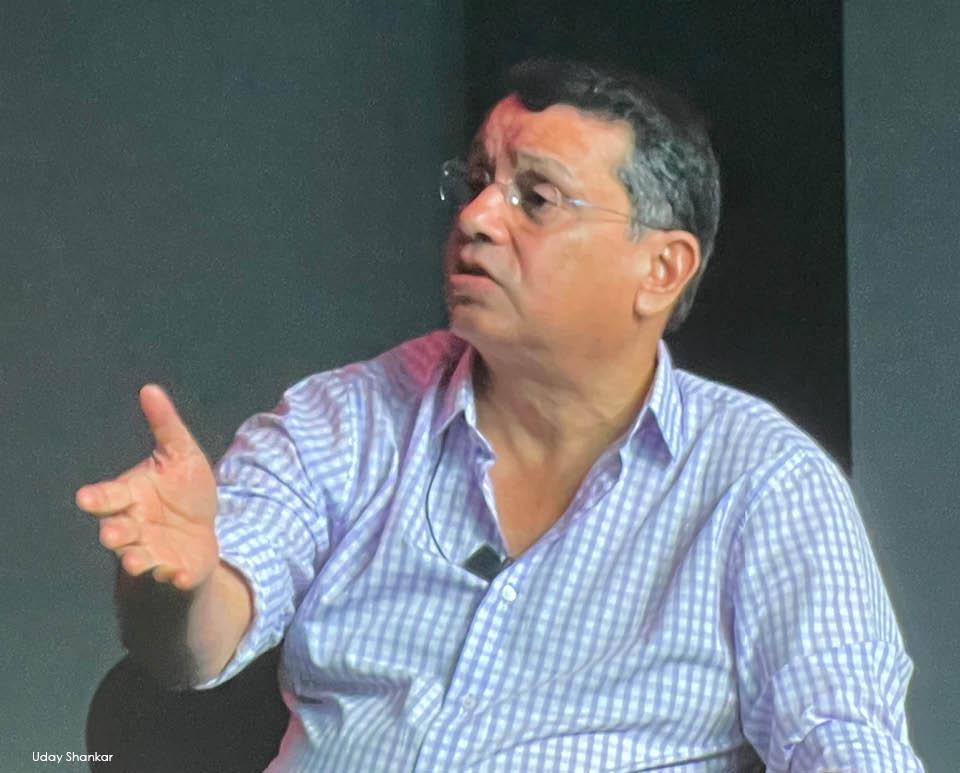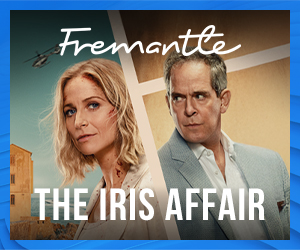
Bodhi Tree Systems director, Uday Shankar, this morning outlined a vision for a video entertainment platform accessible by every Indian consumer, relevant to a gigantic audience that never plugged into a TV experience, and sidestepped the limitations of a creative culture that spent too much money targeting too few people and prioritised celebrity parties.
Shankar said there was a clear opportunity to target consumers in India who have “totally bypassed television as an entertainment experience… The appetite has always been there, but it was limited by access to that content and affordability,” Shankar told APOS delegates in Bali as the two-day show got underway.
“We are very focused on disrupting the television model,” he said, adding that “television’s limitations have been exposed for a long time. And yet, people who built incredible businesses in TV refuse to see those limitations.”
“When the data revolution happened, when data prices crashed and people were able to watch a movie of two and a half hours for less than a dollar, that changed things,” he said.
Talking about India’s diversity and the content aspirations of India’s entire population, Shankar said “our belief is that you can create an alternative to television, and I’m not talking about a streaming service, not talking about a television channel…”
“We think the time is right in India to create an alternative to television on one app, that reflects India’s geographical, cultural, social and linguistic diversity, and that is what JioCinema is.”
Shankar said he struggled to understand why shows that cost US$250,000 an episode “are even being made, unless you want to get invited to the celebrity parties… there is no reason for most of that content to be made. It does not get any traction.”
“It's one thing for global platforms to make that content, because they have a global monetisation model. Perhaps, it makes sense for them, but if your primary market is a market like India and you are creating content that by definition is limited to two or three or 5% of the people, why are you even doing...
Bodhi Tree Systems director, Uday Shankar, this morning outlined a vision for a video entertainment platform accessible by every Indian consumer, relevant to a gigantic audience that never plugged into a TV experience, and sidestepped the limitations of a creative culture that spent too much money targeting too few people and prioritised celebrity parties.
Shankar said there was a clear opportunity to target consumers in India who have “totally bypassed television as an entertainment experience… The appetite has always been there, but it was limited by access to that content and affordability,” Shankar told APOS delegates in Bali as the two-day show got underway.
“We are very focused on disrupting the television model,” he said, adding that “television’s limitations have been exposed for a long time. And yet, people who built incredible businesses in TV refuse to see those limitations.”
“When the data revolution happened, when data prices crashed and people were able to watch a movie of two and a half hours for less than a dollar, that changed things,” he said.
Talking about India’s diversity and the content aspirations of India’s entire population, Shankar said “our belief is that you can create an alternative to television, and I’m not talking about a streaming service, not talking about a television channel…”
“We think the time is right in India to create an alternative to television on one app, that reflects India’s geographical, cultural, social and linguistic diversity, and that is what JioCinema is.”
Shankar said he struggled to understand why shows that cost US$250,000 an episode “are even being made, unless you want to get invited to the celebrity parties… there is no reason for most of that content to be made. It does not get any traction.”
“It's one thing for global platforms to make that content, because they have a global monetisation model. Perhaps, it makes sense for them, but if your primary market is a market like India and you are creating content that by definition is limited to two or three or 5% of the people, why are you even doing it?”
“On the other hand, you have an opportunity to go to 1.4 billion people... Today there are 600 million video viewers on mobile, that number will go to 800 or 850 million with the launch of 5G and cheaper smartphones,” he said.
“Our model is very simple. We have this super premium content called cricket in India, for which consumers are willing to pay top dollar. We have already committed over US$4 billion only for cricket and we are paying a lot of money for drama, but it has to be content that's relevant to a large majority of India,” he said.
Shankar described the Indian Premier League (IPL) cricket experience as “astounding and humbling at the same time”.
“I've always believed that if you unblock access, consumers will surprise you. And that hypothesis has played out extremely well during the IPL,” he said.
“Before that, in some sense, there was this belief that even cricket was somehow peaking in India, because the same people were watching, that the base of audience was not firm. That hypothesis is completely gone.”
“And in terms of advertising… Television used to be the primary monetisation platform for live sports. And now that that's completely changed,” he said.
Asked about AVOD, Shankar was critical.
The implication is that “those who do not pay you for a monthly subscription are somehow not that good and we shouldn’t care about them… That is just disrespectful and clearly shows a poor understanding of markets,” he said.
“This is an income sensitive market, a large number of people are getting into affluence… only slowly and gradually, and even if they can pay, the habit of paying still has to evolve. For a number of years, payment mechanisms were not efficient. Now we have the digital revolution, that will change,” he said.
“To me, anyone who's willing to consume the content is a potential customer, and we just have to innovate in ways in which we can get them… we can create value for them, and that's the model,” he added.
JioCinema’s acquisition of high-end content from Warner Bros Discovery was, he said, part of the comprehensive end-to-end offering catering for all sectors of India’s population.
“We are looking at different consumer segments, creating a proposition for all. We are not setting up a high boutique store for people like you and me,” he said.
“5% of the population in India is very excited about high-quality Hollywood content. We will continue to get that, but I'm not a big fan of paying billions of dollars for international sports rights and getting 10 million people to watch,” he said.
He described the notion that subscriptions can only be driven by global content as a “myth” and “a very, very limited view”.




























